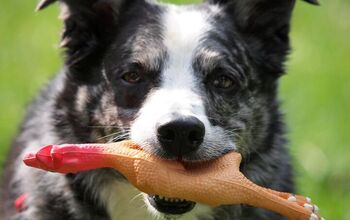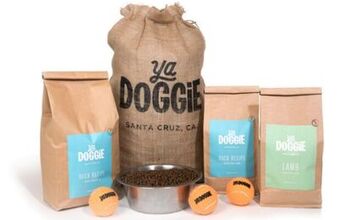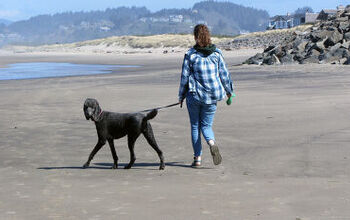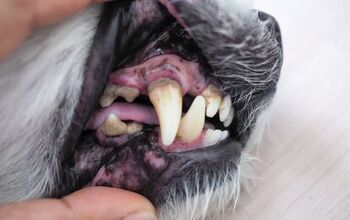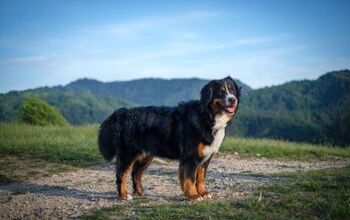Study: A Dog’s Diet is Important To His Gut in More Ways Than One

A study released by researchers from Nestle Purina PetCare states that the contents of a dog’s diet affect his microbiome similarly to the way a human’s does. Dogs fed a high-protein, low-carbohydrate diet had decreases in the ratio of Bacteroidetes to Firmicutes bacteria, two bacteria related to weight gain and obesity in humans.
Essentially, in humans, the more Bacteroidetes you have in your gut compared to Firmicutes, the leaner you will be. Researchers believe this to be true of dogs as well, and believe these findings may go along way in identifying other microbiology-inspired strategies to battle the growing problem of pet obesity. Over half the dogs in America are overweight, and this is a trend that seems to be getting worse, not better, according to the Association for Pet Obesity Prevention.
Related: How To Use a Dog Food Calculator
Computational biologist at Nestle Purina Johnny Li says that he launched the research because the effects of the canine microbiome on overall health has little documentation. Human studies have increasing been connecting microbial imbalances in the gut to a myriad of physical conditions, such as obesity, cardiovascular disease, immune disorders, and metabolic syndromes. So why couldn’t the same imbalances affect dogs in the same way?
The research team studied 32 Labrador Retrievers and 32 Beagles, in equal amounts of lean and overweight dogs, and all were fed the same baseline diet for the first four weeks. During the second month, the diets varied, with half receiving high-protein/low-carb diets and the other half receiving low-protein/high-carb diets.
Related: Do I Have A Fat Dog? How To Tell If Your Dog Is Overweight
Differences in the dogs’ microbiomes were negligent after the first four weeks of the same diets, but dramatically different once the diets were switched up. Dogs who had low-protein and high-carb diets had significantly higher amounts of Bacteroides uniformis and Clostridium butyricum in their guts.
Fecal microbiome studies conducted after the first four weeks revealed few differences in the gut microbiomes of the dogs. Studies conducted after the experimental diet showed dramatic changes in the microbiome. Dogs that ate a low-protein, high-carbohydrate diet had higher abundances of Bacteroides uniformis and Clostridium butyricum, while the dogs that ate a high-protein/low-carb diet had decreases in the Bacteroidetes to Firmicutes ratios. These differences were even more pronounced in obese dogs than in lean dogs, suggesting that overweight dogs may have more dietary control results when manipulating gut flora as a weight control intervention.
Though these findings are still new and not expansive, Li says this study is a framework to continue to explore the connection in diet and gut microbiota in dogs. And quite possibly, this research could translate into ways to guide the use of pre- and probiotics in pet foods to help fight the obesity epidemic.

More by Lori Ennis





